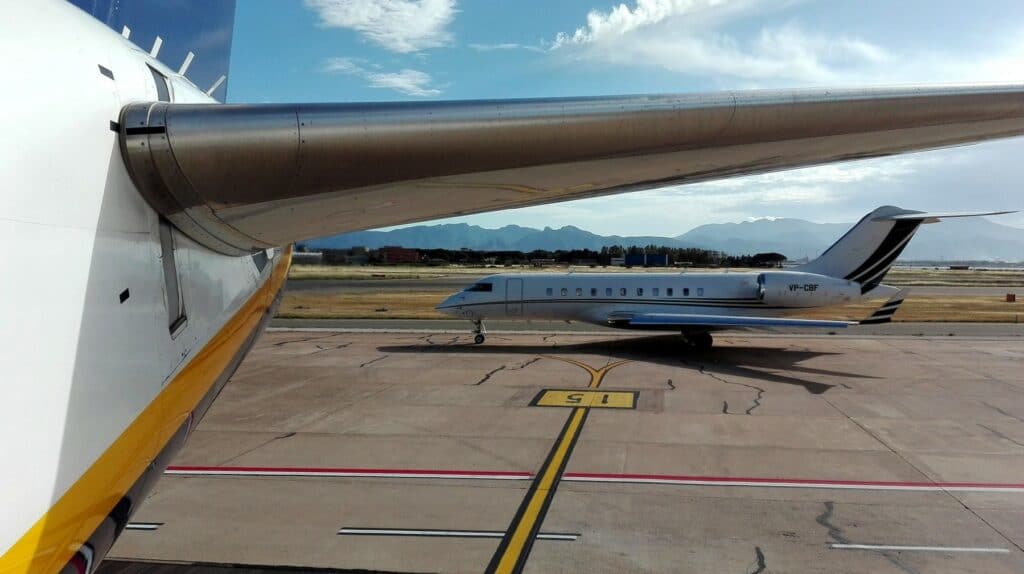Introduction When public authorities buy goods and services for themselves, they have to pay a market price, otherwise they confer an abnormal advantage to the sellers. On 14 June 2023, the General Court, in case T‑79/21, Ryanair & Airport Marketing Services v European Commission, ruled that public authorities still confer an abnormal advantage by buying good and services that they […]
State Aid Law
Blog
State Aid Uncovered Blog
In Lexxion’s State Aid Uncovered blog, Prof. Phedon Nicolaides publishes weekly critical analyses of recent State aid judgments and decisions. Each post presents the key points of a court judgment or EU Commission decision, places it in the context of similar case law or practice, assesses the underlying reasoning and highlights any inconsistencies or contradictions.
Guest contributions from other State aid experts will also be published on the blog at irregular intervals to complement the content of the blog posts.
- airports ×
3. July 2023 |
State Aid Uncovered
by Phedon Nicolaides
27. June 2023 |
State Aid Uncovered
by Phedon Nicolaides
Introduction When public authorities buy goods and services for themselves, they have to pay a market price, otherwise they confer an abnormal advantage to the sellers. On 14 June 2023, the General Court, in case T-79/21, Ryanair & Airport Marketing Services v European Commission, ruled that public authorities still confer an abnormal advantage by buying good and services that they […]
25. January 2022 |
State Aid Uncovered
by Phedon Nicolaides
A private investor is not interested in regional development. A private investor recoups its investment in infrastructure from revenue from the operation of that infrastructure. Duplication of infrastructure does not contribute to regional development. Introduction In 2015 the European Commission caused a buzz in the State aid community when it decided that investment aid granted to a small Polish airport […]
21. September 2021 |
State Aid Uncovered
by Phedon Nicolaides
Public funding of activities that fall within the remit of the state does not constitute state aid. Although the presence of a credible ex ante business plan based on realistic assumptions is a strong indicator that the MEOT is satisfied, its absence does not necessarily prove that the MEOT is failed. Introduction Following a complaint by Carpatair, the European Commission […]
16. June 2020 |
State Aid Uncovered
by Phedon Nicolaides
Public funding that flows through intermediaries to third parties also counts as a state resource if the intermediaries carry out instructions by the funding authority. Temporary Framework: Number of approved covid-19 measures, as of 12 June 2020: 154* Legal basis: Article 107(2)(b): 14; Article 107(3)(b): 130; Article 107(3)(c): 14 Three recapitalisation measures have been approved [Finland, Lithuania & Poland]. The […]
7. November 2017 |
State Aid Uncovered
by Phedon Nicolaides
The prohibition of State aid in Article 107(1) of the Treaty applies both to the direct and indirect beneficiaries of aid. The direct and indirect beneficiaries are those who are intentionally targeted by the aid. Secondary effects are benefits which are inherent in an aid measure and which are not targeted at specific undertakings. Introduction Public funding for the […]
6. March 2014 |
State Aid Uncovered
by Phedon Nicolaides
Introduction Last week I reviewed the main provisions of the new Guidelines on State Aid to Airports and Airlines. This week I focus on three issues which are either not well explained or too ambiguous, leaving too much room for creative interpretation. [1] Investment funding gap The new Guidelines, like the other new rules, stress that aid must have an incentive […]
28. February 2014 |
State Aid Uncovered
by Phedon Nicolaides
Introduction[1] One more set of State aid rules for 2014-20 has been adopted. On Thursday, 20 February 2014, the Commission published its Guidelines on State Aid to Airports and Airlines.[2] The other main substantive rules which are already in place are the following, in chronological order:[3] The package on services of general economic interest (SGEI): A Communication, a Decision (like a […]
- airports ×
3. July 2023 |
State Aid Uncovered
by Phedon Nicolaides
Introduction When public authorities buy goods and services for themselves, they have to pay a market price, otherwise they confer an abnormal advantage to the sellers. On 14 June 2023, the General Court, in case T‑79/21, Ryanair & Airport Marketing Services v European Commission, ruled that public authorities still confer an abnormal advantage by buying good and services that they […]
27. June 2023 |
State Aid Uncovered
by Phedon Nicolaides
Introduction When public authorities buy goods and services for themselves, they have to pay a market price, otherwise they confer an abnormal advantage to the sellers. On 14 June 2023, the General Court, in case T-79/21, Ryanair & Airport Marketing Services v European Commission, ruled that public authorities still confer an abnormal advantage by buying good and services that they […]
25. January 2022 |
State Aid Uncovered
by Phedon Nicolaides
A private investor is not interested in regional development. A private investor recoups its investment in infrastructure from revenue from the operation of that infrastructure. Duplication of infrastructure does not contribute to regional development. Introduction In 2015 the European Commission caused a buzz in the State aid community when it decided that investment aid granted to a small Polish airport […]
21. September 2021 |
State Aid Uncovered
by Phedon Nicolaides
Public funding of activities that fall within the remit of the state does not constitute state aid. Although the presence of a credible ex ante business plan based on realistic assumptions is a strong indicator that the MEOT is satisfied, its absence does not necessarily prove that the MEOT is failed. Introduction Following a complaint by Carpatair, the European Commission […]
16. June 2020 |
State Aid Uncovered
by Phedon Nicolaides
Public funding that flows through intermediaries to third parties also counts as a state resource if the intermediaries carry out instructions by the funding authority. Temporary Framework: Number of approved covid-19 measures, as of 12 June 2020: 154* Legal basis: Article 107(2)(b): 14; Article 107(3)(b): 130; Article 107(3)(c): 14 Three recapitalisation measures have been approved [Finland, Lithuania & Poland]. The […]
7. November 2017 |
State Aid Uncovered
by Phedon Nicolaides
The prohibition of State aid in Article 107(1) of the Treaty applies both to the direct and indirect beneficiaries of aid. The direct and indirect beneficiaries are those who are intentionally targeted by the aid. Secondary effects are benefits which are inherent in an aid measure and which are not targeted at specific undertakings. Introduction Public funding for the […]
6. March 2014 |
State Aid Uncovered
by Phedon Nicolaides
Introduction Last week I reviewed the main provisions of the new Guidelines on State Aid to Airports and Airlines. This week I focus on three issues which are either not well explained or too ambiguous, leaving too much room for creative interpretation. [1] Investment funding gap The new Guidelines, like the other new rules, stress that aid must have an incentive […]
28. February 2014 |
State Aid Uncovered
by Phedon Nicolaides
Introduction[1] One more set of State aid rules for 2014-20 has been adopted. On Thursday, 20 February 2014, the Commission published its Guidelines on State Aid to Airports and Airlines.[2] The other main substantive rules which are already in place are the following, in chronological order:[3] The package on services of general economic interest (SGEI): A Communication, a Decision (like a […]
- airports ×
3. July 2023 |
State Aid Uncovered
by Phedon Nicolaides
Introduction When public authorities buy goods and services for themselves, they have to pay a market price, otherwise they confer an abnormal advantage to the sellers. On 14 June 2023, the General Court, in case T‑79/21, Ryanair & Airport Marketing Services v European Commission, ruled that public authorities still confer an abnormal advantage by buying good and services that they […]
27. June 2023 |
State Aid Uncovered
by Phedon Nicolaides
Introduction When public authorities buy goods and services for themselves, they have to pay a market price, otherwise they confer an abnormal advantage to the sellers. On 14 June 2023, the General Court, in case T-79/21, Ryanair & Airport Marketing Services v European Commission, ruled that public authorities still confer an abnormal advantage by buying good and services that they […]
25. January 2022 |
State Aid Uncovered
by Phedon Nicolaides
A private investor is not interested in regional development. A private investor recoups its investment in infrastructure from revenue from the operation of that infrastructure. Duplication of infrastructure does not contribute to regional development. Introduction In 2015 the European Commission caused a buzz in the State aid community when it decided that investment aid granted to a small Polish airport […]
21. September 2021 |
State Aid Uncovered
by Phedon Nicolaides
Public funding of activities that fall within the remit of the state does not constitute state aid. Although the presence of a credible ex ante business plan based on realistic assumptions is a strong indicator that the MEOT is satisfied, its absence does not necessarily prove that the MEOT is failed. Introduction Following a complaint by Carpatair, the European Commission […]
16. June 2020 |
State Aid Uncovered
by Phedon Nicolaides
Public funding that flows through intermediaries to third parties also counts as a state resource if the intermediaries carry out instructions by the funding authority. Temporary Framework: Number of approved covid-19 measures, as of 12 June 2020: 154* Legal basis: Article 107(2)(b): 14; Article 107(3)(b): 130; Article 107(3)(c): 14 Three recapitalisation measures have been approved [Finland, Lithuania & Poland]. The […]
7. November 2017 |
State Aid Uncovered
by Phedon Nicolaides
The prohibition of State aid in Article 107(1) of the Treaty applies both to the direct and indirect beneficiaries of aid. The direct and indirect beneficiaries are those who are intentionally targeted by the aid. Secondary effects are benefits which are inherent in an aid measure and which are not targeted at specific undertakings. Introduction Public funding for the […]
6. March 2014 |
State Aid Uncovered
by Phedon Nicolaides
Introduction Last week I reviewed the main provisions of the new Guidelines on State Aid to Airports and Airlines. This week I focus on three issues which are either not well explained or too ambiguous, leaving too much room for creative interpretation. [1] Investment funding gap The new Guidelines, like the other new rules, stress that aid must have an incentive […]
28. February 2014 |
State Aid Uncovered
by Phedon Nicolaides
Introduction[1] One more set of State aid rules for 2014-20 has been adopted. On Thursday, 20 February 2014, the Commission published its Guidelines on State Aid to Airports and Airlines.[2] The other main substantive rules which are already in place are the following, in chronological order:[3] The package on services of general economic interest (SGEI): A Communication, a Decision (like a […]










